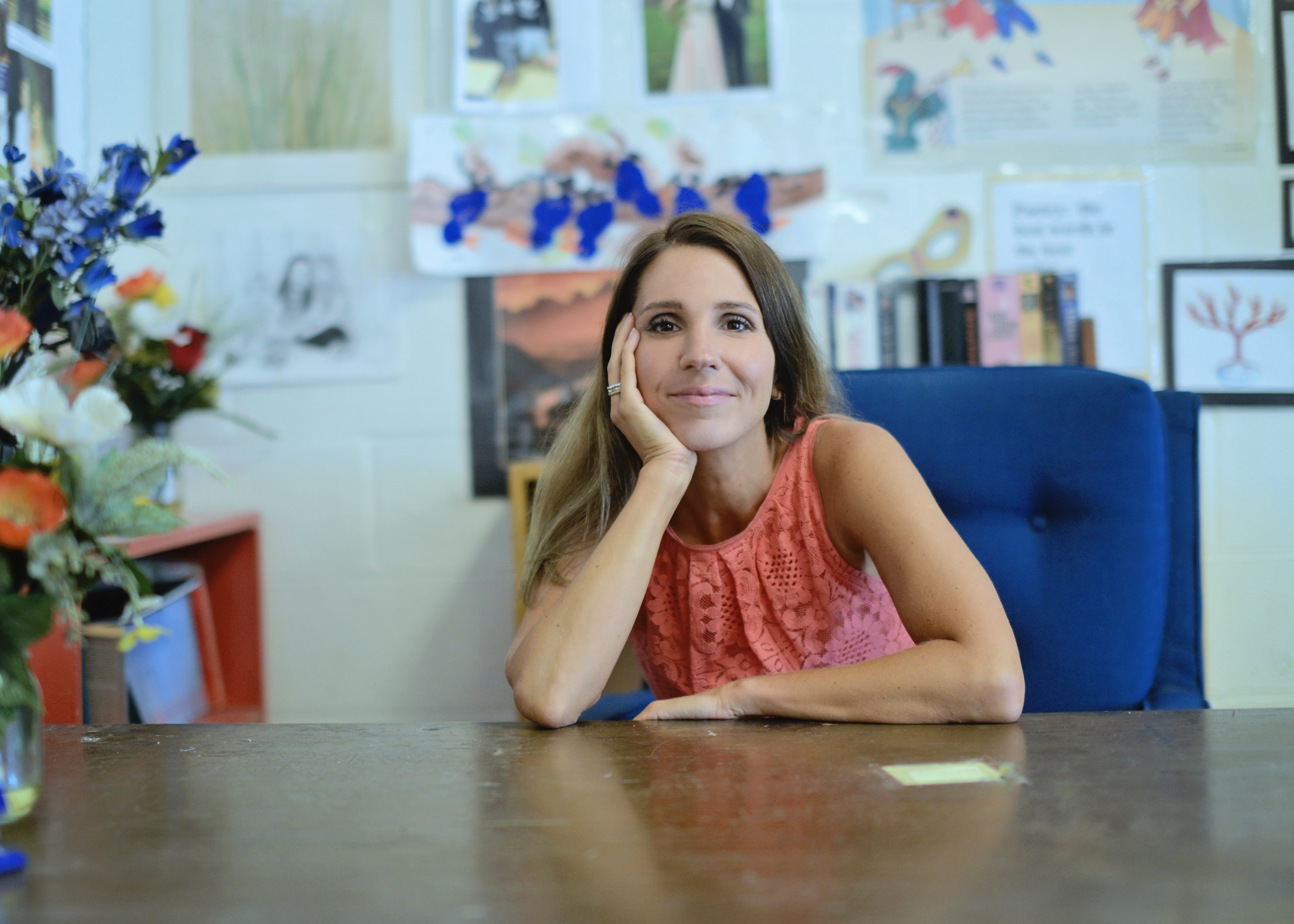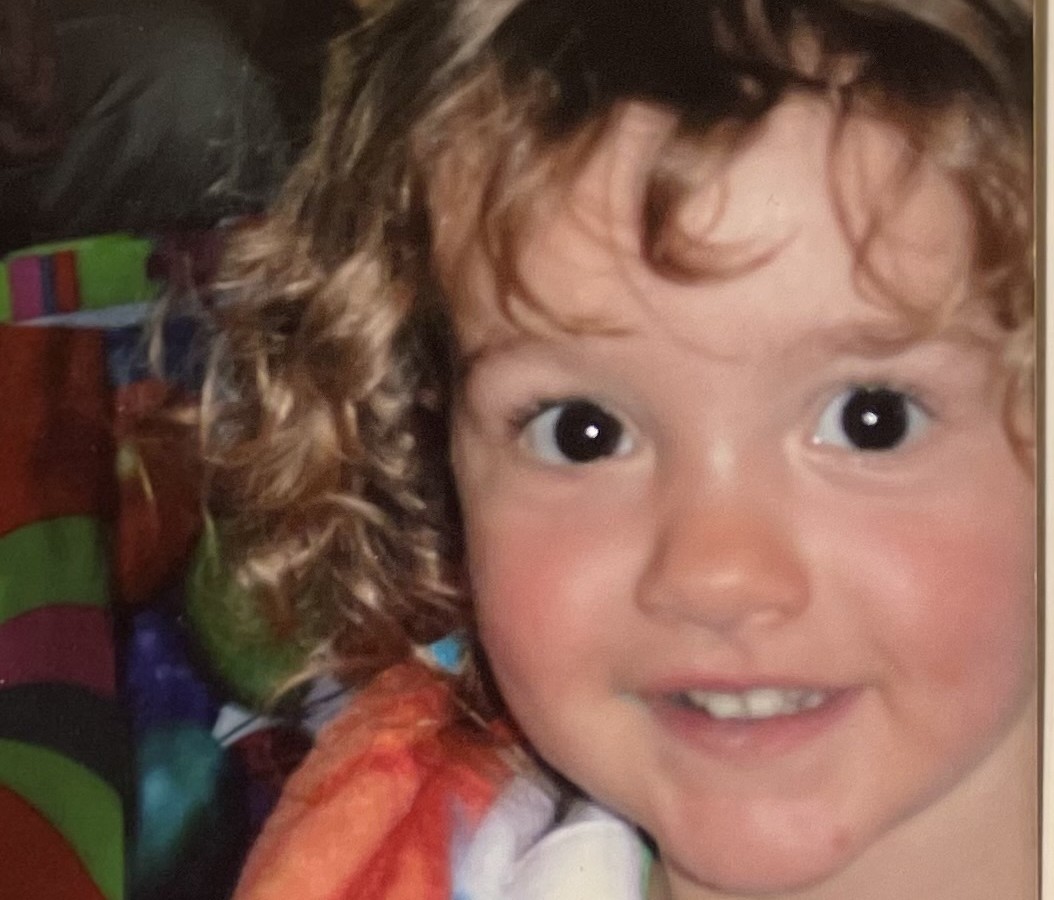“Do you know where that organic, green kinda gray bra is?“ she asks. “I’ve looked everywhere, and I can’t find it.”
“Well, is it green or is it gray? Because if it’s the gray one with a hint of green, I think I saw it underneath the pile of clean clothes on your bed.”
While squatting by a laundry basket in her bedroom, she stares down the hall at me as I fold more of her “clothes to go to college” on her bed in her sister’s bedroom.
Yes, Addie has two beds. Why? Because Addie’s played musical beds in our house since the day she was born.
At first, we tried laying her in the crib, but she wouldn’t sleep. Then, we put her beside our bed in a bouncer, but she still wouldn’t knock off. So, on day three of utter exhaustion, she snuggled down in the canyon of my chest and slept like an angel.
And that’s pretty much where she stayed for the first 4 1/2 years of her life. As two other babies came along, Addie sawed logs between my husband and me.
Truly, she snored like a lumberjack.
“Do you remember how you made us move our bed so when you went to sleep that first night you could still look at us?” I ask.
“I remember. I couldn’t fall asleep if I couldn’t see you.”
Over the past six months, Addie and I have had countless of these “Do you remember?” conversations all in a perempatory attempt to lessen the blow of the inevitable: the day she won’t be able to see us anymore.
She’s leaving. We’re not going with her. She’s not staying with us.
We’ve talked through the horror of daycare, how she didn’t stop crying until baby Meg joined her, and then she was fine. We’ve reminisced about the first day of kindergarten and the gut-wrenching sobs she emitted every morning for roughly the first three months of big-girl school.
We remembered old family videos, even watched a few, and made fun of how bossy she was, keeping her sister’s birthday Barbie instead of giving it to her, threatening to hit her brother over the head with a guitar, and rehashed all sorts of undercover naughtiness it’s great to relive when you feel like you’re coming to the end of your childhood.
If only it were easy to say goodbye to someone you love. If only you could believe FaceTime, Skype, and Zoom could help bridge the distance you feel in your heart.
As a mom, I’ve heard it all the past few weeks. Everybody’s been through it and everybody tells you how to get through it, and honestly, the last thing anybody wants to hear before they say goodbye to their baby is how to get through it.
I don’t want to get through it. I don’t want to begin it. In fact, I’d like to avoid it altogether.
My husband has a much healthier way of coping with his feelings of loss. He looks at me and says, “Don’t look at me.”
When he feels like he’s going to cry he walks away and then doesn’t come back until he’s ready. He looks down and pretends that he’s not really upset all while the tears stream down his face, and I know that for him and me there really are no words of comfort we can give each other.
Just space and then no space and then space again.
A quarter of a century ago my parents packed up the Buick and headed off to Vermont with me. I still remember what I wore: a red T-shirt, bell-bottom jeans and Saucony sneakers. The morning I had to move in my mother curled my hair in the hotel bathroom.
“Hold still and be patient,” she said.
But how could I hold still when my whole life was starting? I was ready to go, go, go.
By the time we moved all my bags in I had changed my mind. I sat down on the bench in the courtyard and commenced weeping.
But my folks were smart. They knew I’d be sad, so instead of adding to it they put all of their sadness into two separate letters which they gave me as I sobbed.
“Don’t read these until we leave,” they said, and then turned around and held hands as they walked away.
Surprisingly, they never looked back. I guess nobody wants to show their kid how much it hurts to leave them.
My dad‘s letter was much shorter and less emotional than I was planning on. Dad‘s a flowery English teacher and I sorta thought he’d tell me to go stand on a desk as Robin Williams did to all those kids who needed to learn how to seize the day in that “Dead Poets Society” movie.
Instead, he was short and sweet and told me he loved me.
Mom’s letter, however, was a doozy. My mom is a practical, industrious woman. She does more in her morning than I usually accomplish in a month.
Mom asked me if I knew anything about salmon. Well, she did. She knew that salmon returned to their spawning ground. They swim against the current, upstream without even knowing why. Instinct brings them home again.
She said that I was like a salmon and now was my time to explore the ocean, but that I would know when it was time to come home because my heart would tell me.
And when I did, she’d be there waiting for me. She still is.
So yeah, that pretty much ended me. It took me a few weeks to get my sea legs wet. I got sick in the bathroom around 3 AM for some unknown reason for that first month or two before I really felt OK about being away from family and friends.
And now, somehow, I’m writing the same letter to my daughter, searching for the right metaphor to tell her how much she means to me in words.
I settle on a biking metaphor and do one last “Do you remember?”
“Addie, do you remember when you were learning how to ride a bike and you were scared to go without the training wheels? Well, one morning Dad took them off and he gave you a push and you went a little way down the driveway, but the curve really threw you.
You fell, scratched your knee up a little, but you popped back up. You brushed yourself off, looked at us to make sure you were really OK, and when you saw us smiling you said, ‘ I not hurt. I go again.’
The training wheels are off now and you might fall. You will fall a few times, but you’ll get back up. You’ll go again. And you’ll come home when you need to see us smiling at you.”
As my husband and I give her our last parking lot hug and climb back in the car I remind myself to be brave. She needs to see our faces as she walks away. I need to make sure she knows this is no big thing, this being away from us part of her life. It’s just like riding a bike. She’ll figure it out.
But instead, I dissolve. I worry that she’ll see me crying when she turns around. I don’t want her to see my face. I’m supposed to be strong and hold her dad’s hand as we drive away, but the tears won’t stop coming for either of us, and I know this is not the way I want her to remember us.
Then, remarkably, Addie does the thing, the hard thing, she’s done all her life. She turns around, squares her shoulders, and doesn’t look back. She keeps walking as we crane our bodies to watch her slowly make her way to her dorm.
She knows no one wants to show their kid how much it hurts to leave them, and she lets us hold onto the illusion of strength for those last few moments before she disappears out of view.
I tell my husband, “We won’t survive this,” and his hand reaches over to hold mine.
“No, we won’t,” he says, “but she will. And that’s all that matters.”
I see now where Addie’s strength comes from, and I send up a silent prayer of thanks for marrying the right man, for having these beautiful, strong, kind children with him, for being a mom, for raising a family and for them raising us.
And I swim back home to my mother and tell her all about it.


